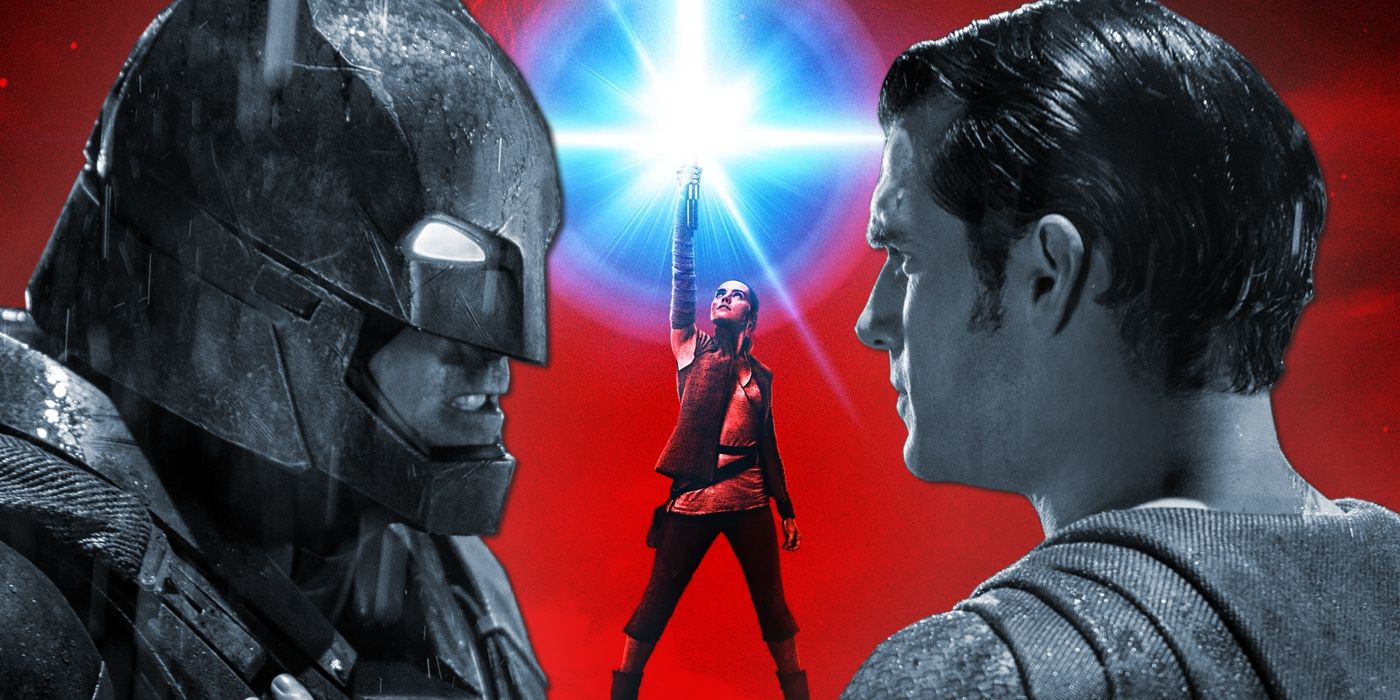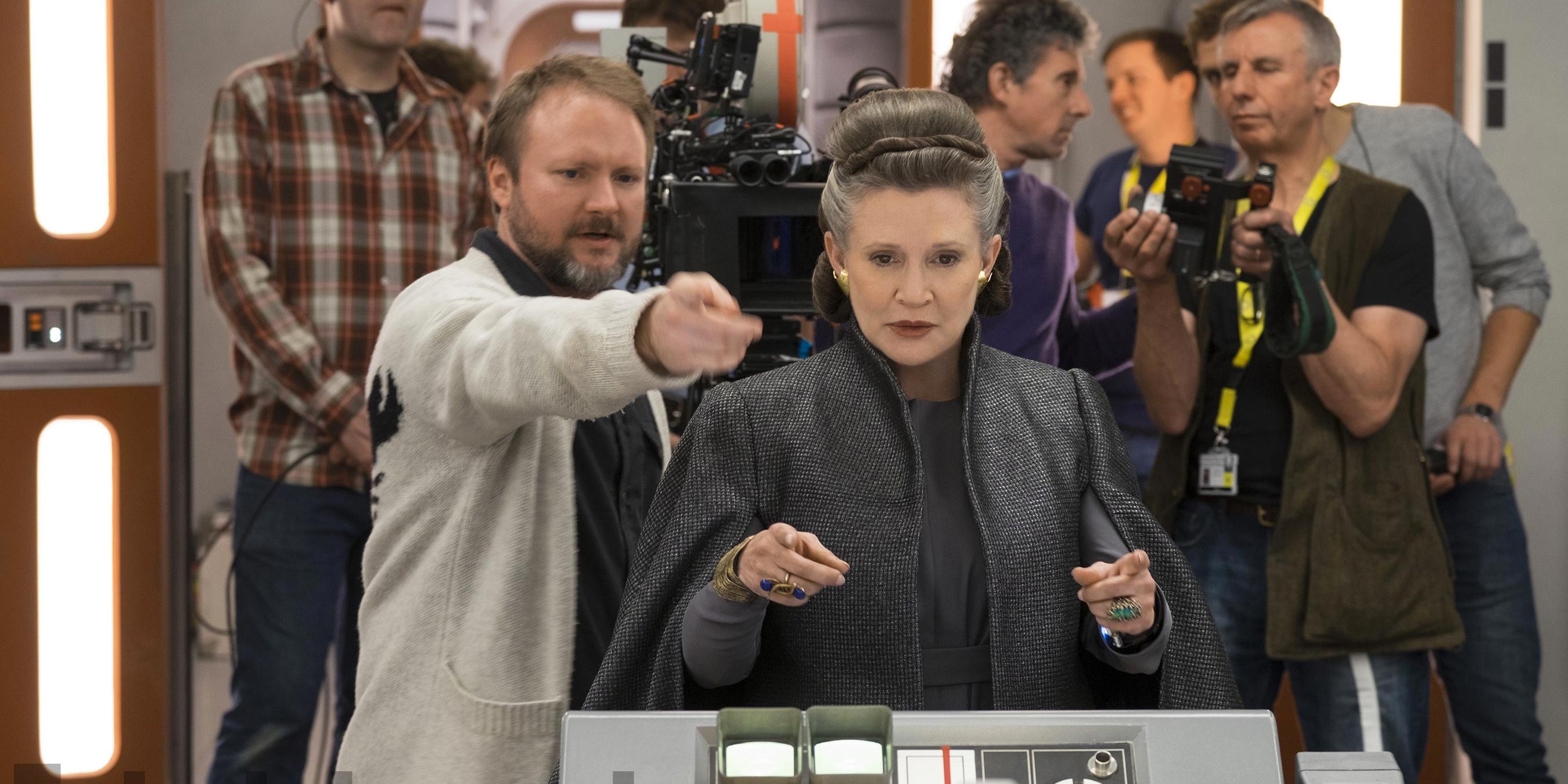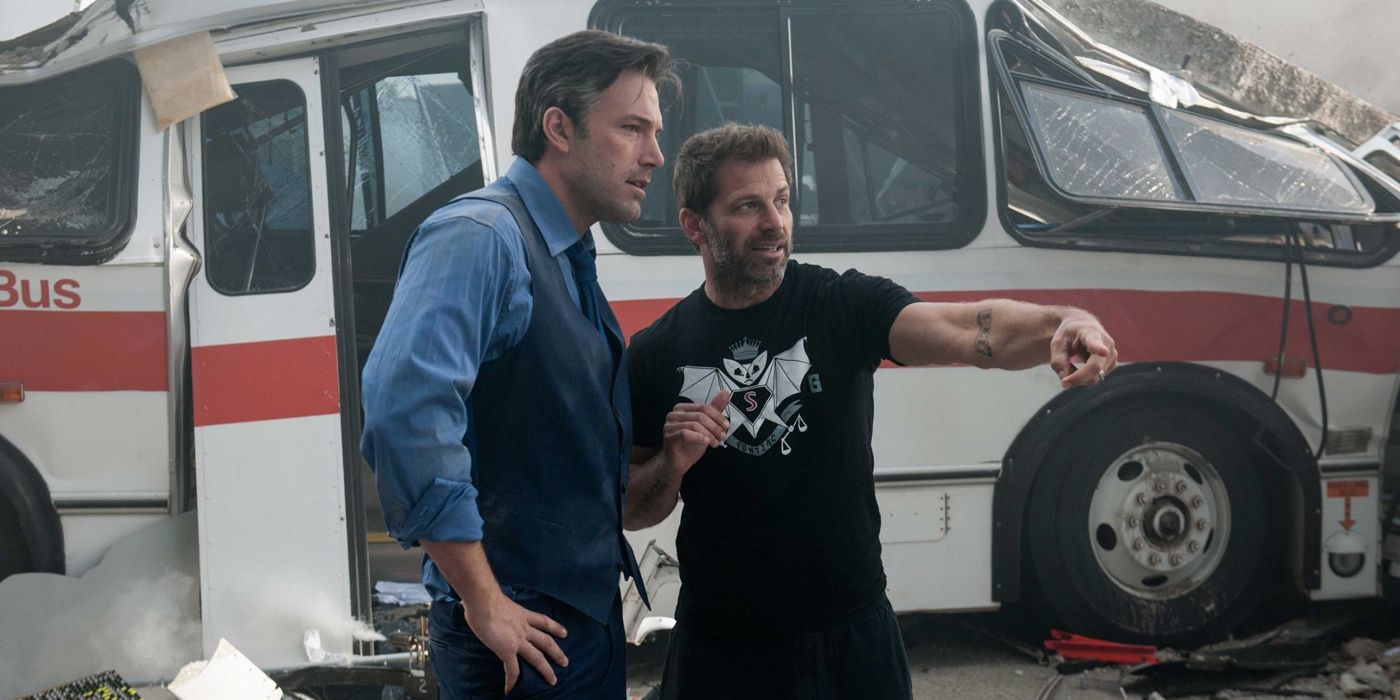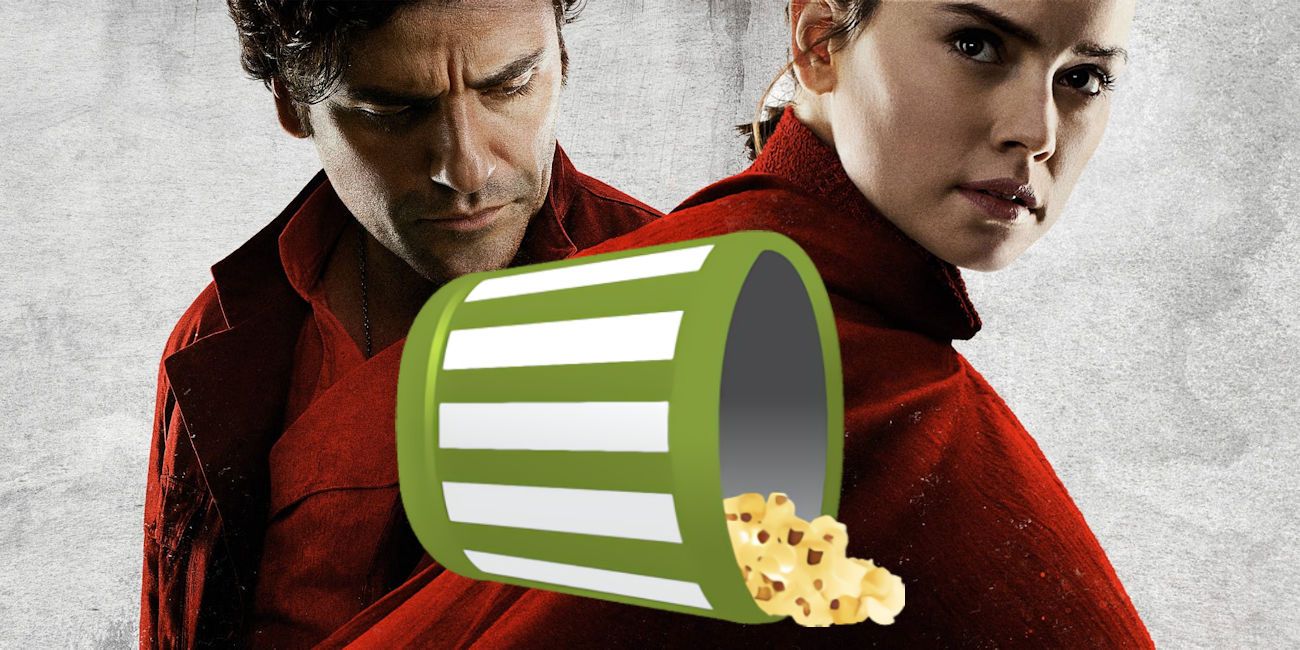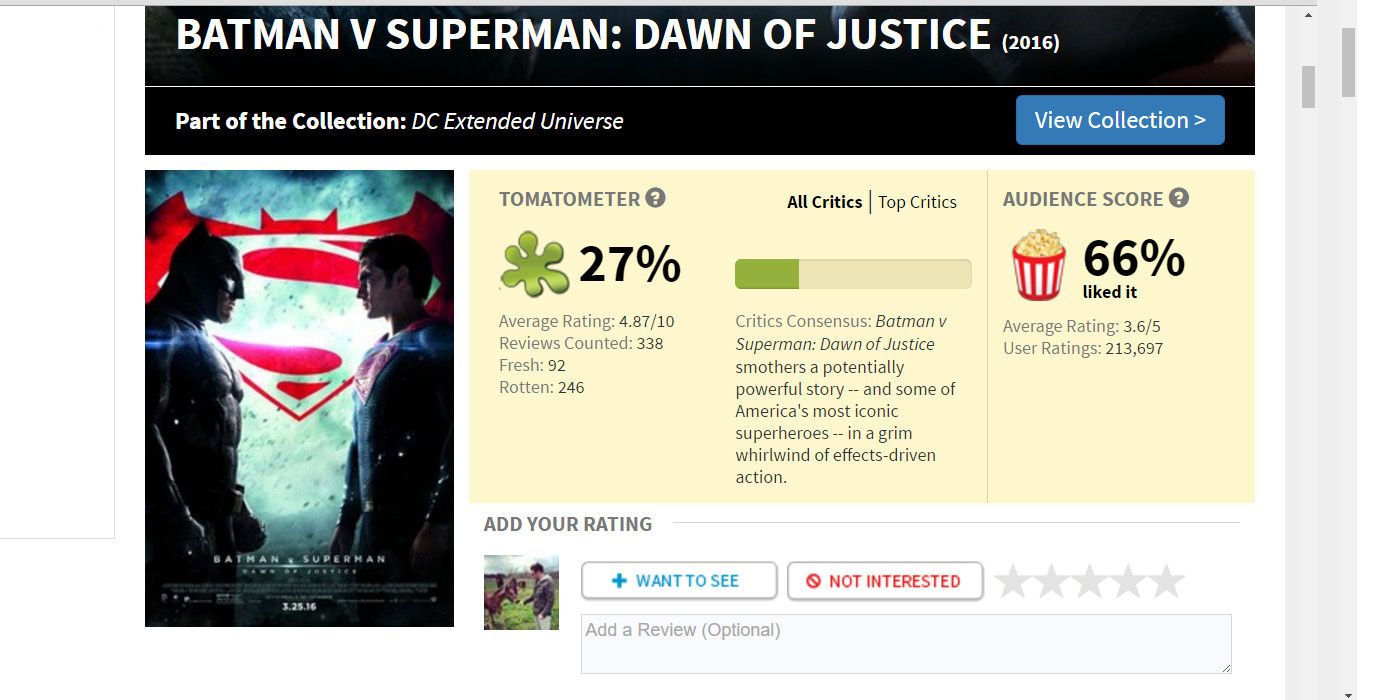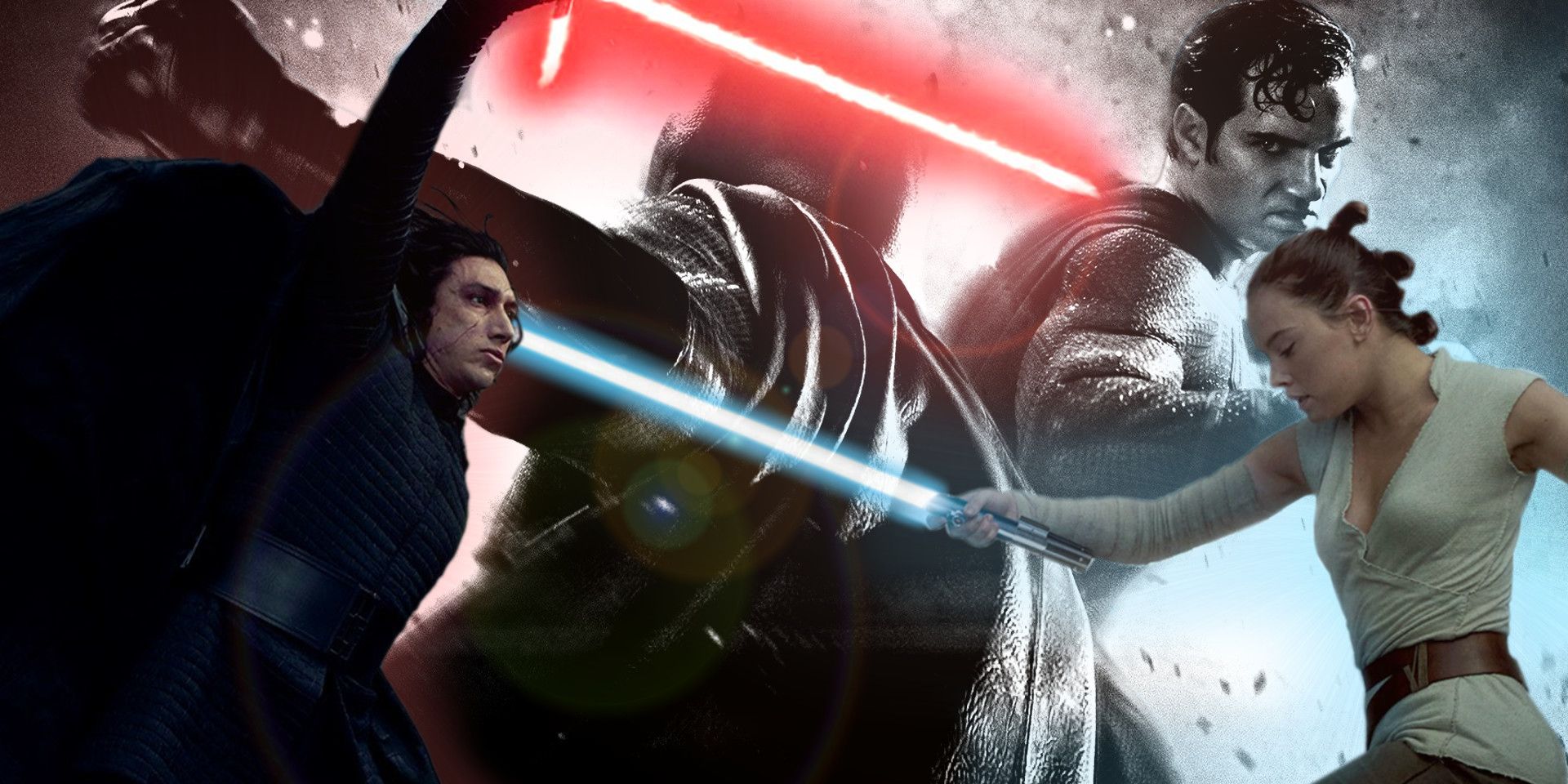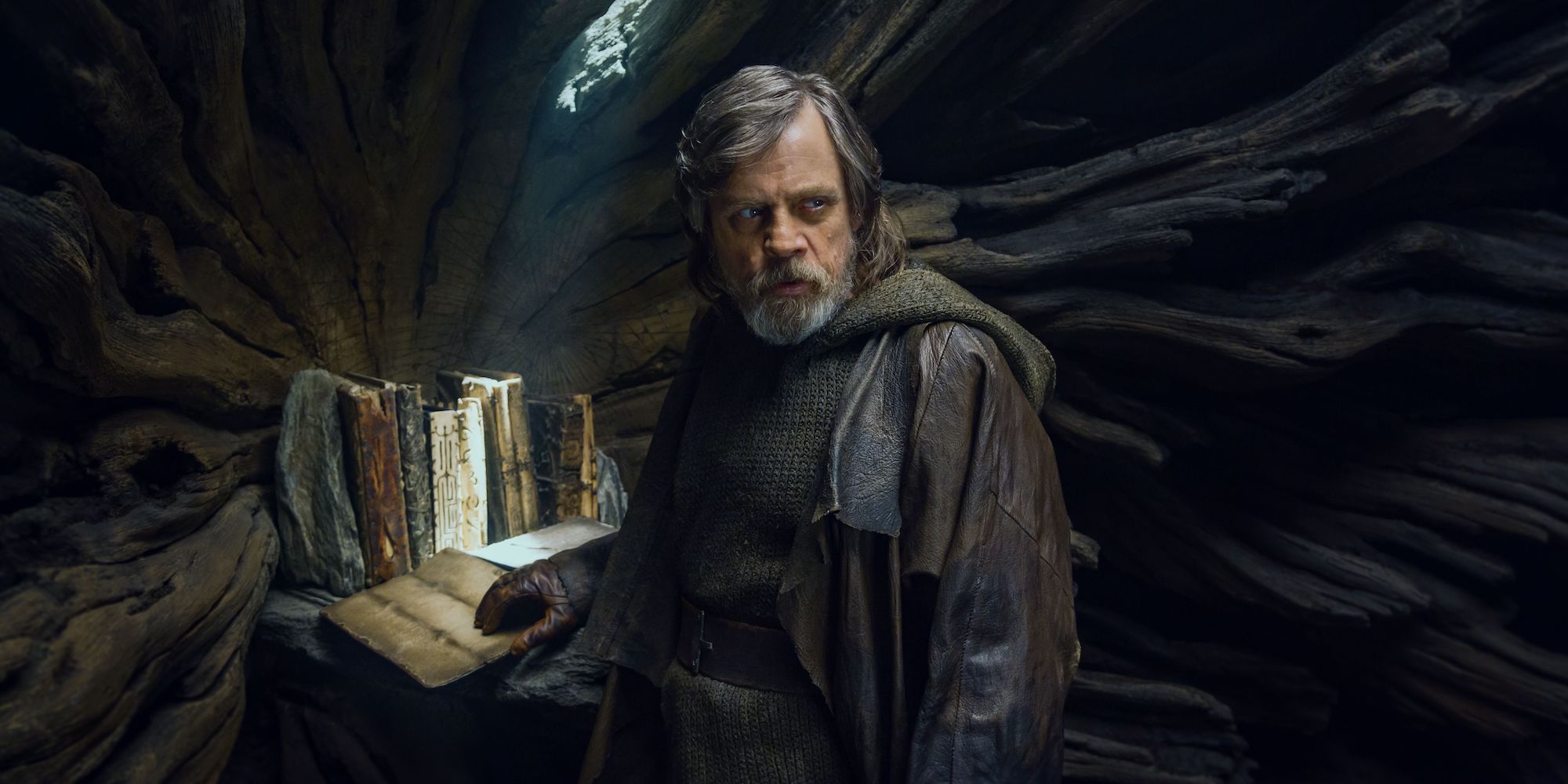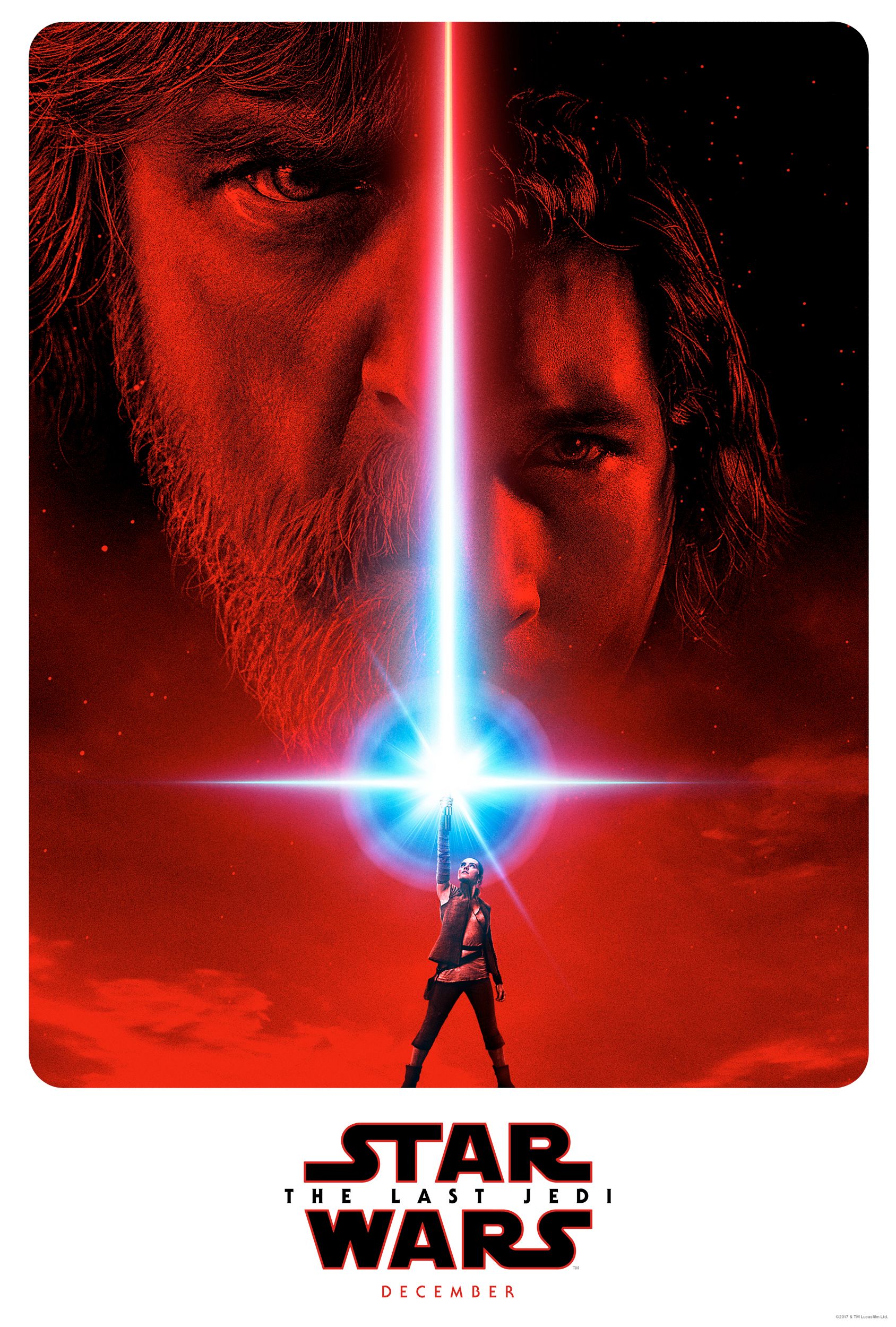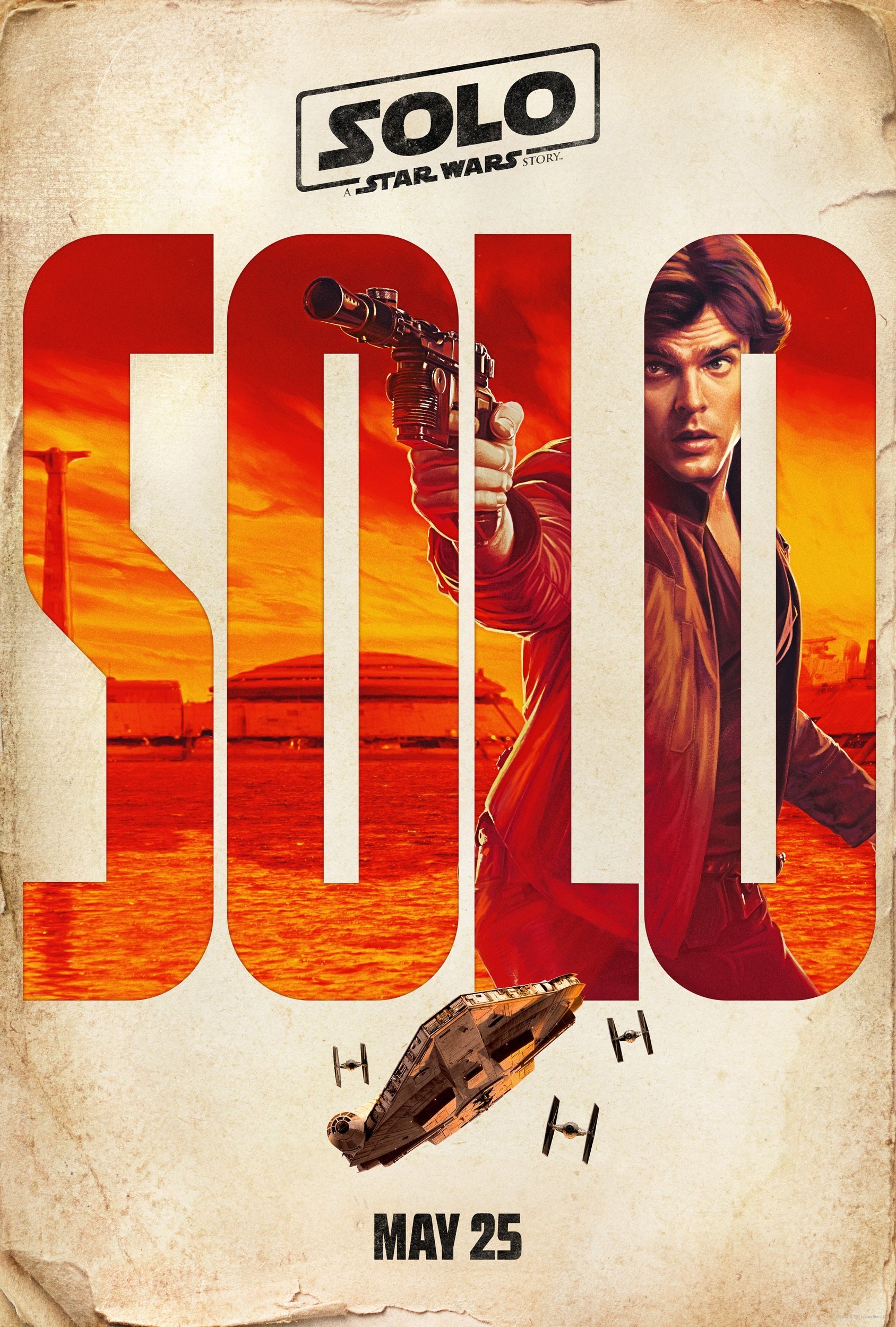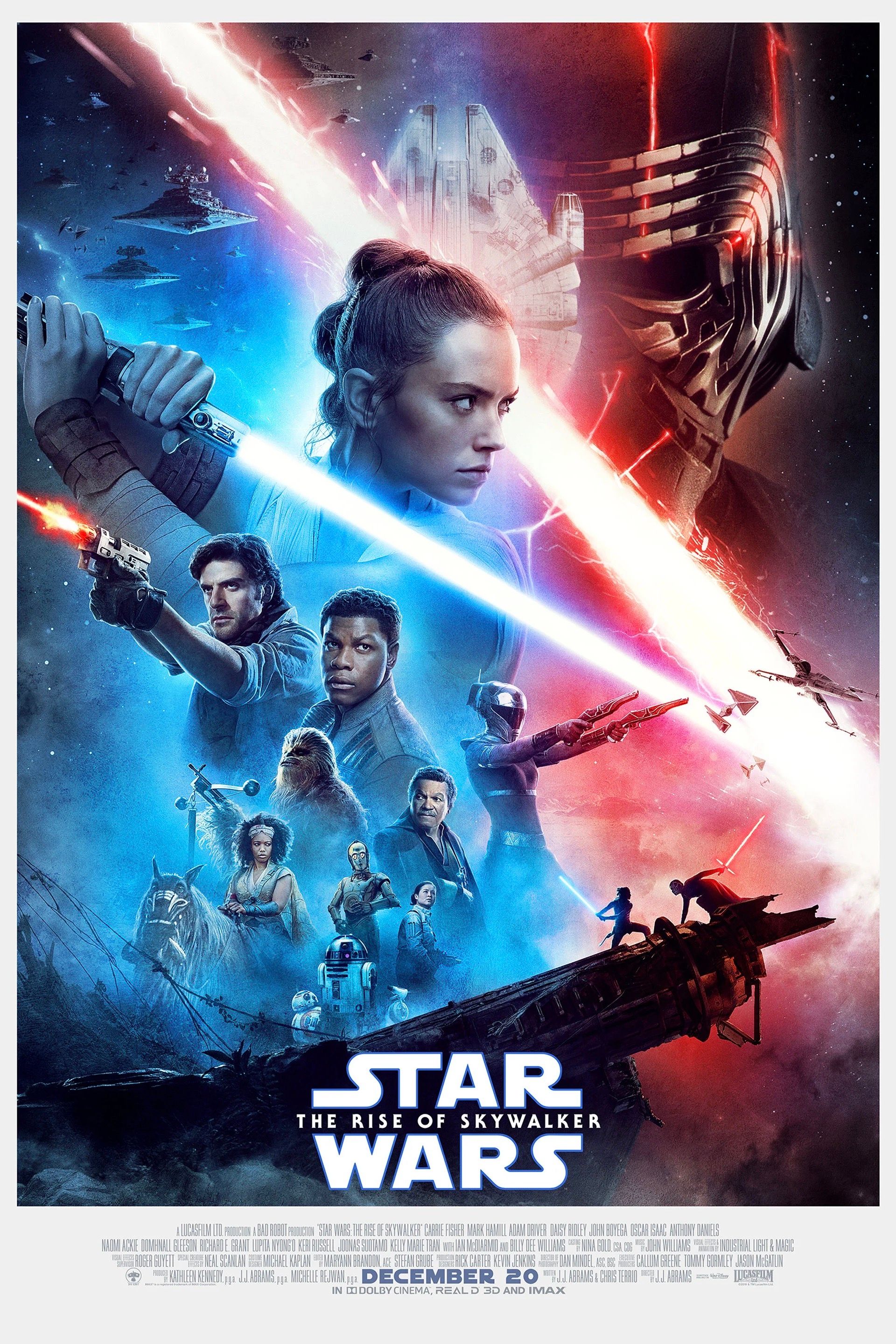To suggest a kinship between Star Wars: The Last Jedi and Batman v Superman is sure to rile up fans and detractors of both tentpoles equally, but may actually be the key to understanding why the pair have proven so divisive; and tell us the real problem with the so-called "fan-critic" divide.If you were wanting to compare Episode VIII to one of the Batman films, the obvious parallel would be The Dark Knight. It's a sequel, the second of a major reboot, that's altogether bigger than what's came before that takes a mature look at its well-established heroes and why they really do what they do. And nobody would disagree that Adam Driver's Kylo Ren is the best blockbuster villain since Heath Ledger's Joker. But when you break it down, there's an unexpected film in the Caped Crusader's pantheon that it's closer to.Related: The Last Jedi's Final Scene Changes Star Wars Forever (And For The Better)On paper, Batman v Superman: Dawn of Justice would have been The Dark Knight of the shared universe era. A deconstruction of both its titular heroes - a highlighting of their fundamental dichotomy - full of icon-shaking turns, it aimed to expand the proto-DCEU and provide a grown-up experience but instead wound up one of the most divisive films of the 2010s: seemingly for every fan claiming it a masterpiece of cinema, there was a detractor ready to decry it a genre folly. Now, why does that sound familiar? Since its release, The Last Jedi has become marked out as the most-divisive entry in the saga, with effusive reviews made to seem all the more positive thanks to an extreme fan backlash. Considering it too was coming from a high-reaching place, the similarities already begin to come to light.To make clear, we're not going to be comparing the films on any subjective or artistic level, rather take in how The Last Jedi and Dawn of Justice have, against all odds, ended up in the same area of the pop culture discussion - and why this is very important for mainstream cinema going forward.Batman v Superman and The Last Jedi Are Conceptually Similar (This Page)
How Batman v Superman and The Last Jedi Are So Similar
From conception, both films were strange beasts. They're auteur projects, driven by their directors: Zack Snyder was following up his own Man of Steel with a story of his own devising written by past and future recurring collaborators David Goyer and Chris Terrio, with regular producer Deborah Snyder on hand; Rian Johnson directed a screenplay he himself wrote built on a daring pitch to Lucasfilm, working alongside producing partner Ram Bergman. By all accounts, they were gifted a rare degree of freedom by their brand-concerned higher-ups at DC and Lucasfilm respectively, with both getting final cut (albeit to a studio-mandated runtime).
But, above all, they were ambitious films. Neither was happy just playing in the nostalgia sandbox like J.J. Abrams in The Force Awakens or Bryan Singer with Superman Returns but wanted to advance and explore the themes, world and characters. They deconstructed Luke Skywalker and Superman, Darth Vader (by way of his grandson Ben Solo) and Batman, but on a grander scale the tropes of the franchise. What makes a Star Wars/Batman/Superman movie? What do these heroes really mean to people, and how does their multi-decade legacy stand today.
Related: Star Wars: The Last Jedi's Ending Explained
More granular, there are obvious narrative parallels. Both are an above-average two-and-a-half hours long (The Last Jedi is just a minute longer than Dawn of Justice), with a recognizable blockbuster style presented in a manner approaching epic - they've been compared to Lawrence of Arabia and Shakespearean tragedies respectively. There's a central scene with a shocking twist that purposely challenges everything the audience thought they knew without ever truly upsetting, a hero death at the end that is more about the nature of the sacrifice to their arc than it is the act itself, and all this alongside character realignment from the previous film and what we'd seen long before.
That last point is particularly important given the position in the franchise. Each movie is the middle of a planned trilogy that runs alongside other new movies set in the universe and exist contextually against forty years of the heroes on the big screen. Yes, the positioning within the story is different - Man of Steel was a standalone, new generation and Batman v Superman more overtly setting up the future, while The Force Awakens and The Last Jedi are more conscious of the series' entire scope - but it's a similar pivot point all the same.
Of course, the end results are completely different. Even those who love/hate both would never say the movies feel like obvious bedfellows. But it is nevertheless in the post-release reactions where the films' comparisons - and their telling distinction - really comes to light.
The Last Jedi and Batman v Superman Have Opposite Fan-Critic Divides
There's always been a perceived divide between fan and critical opinion (in the days following The Last Jedi's release, a clip of Gene Siskel and Roger Ebert defending the mildly-reviewed Return of the Jedi upon release has gone viral) but it's escalated in recent years. The nexus point may well be Batman v Superman - the cast were already claiming their film was for fans not reviewers before the embargo was even up, and the backlash to its Rotten Tomatoes score brought up cries of critics being paid off - but it's only grown with The Last Jedi, where those same allegations have abounded.
Related: Batman V Superman's Fans vs. Critics' Divide
The big difference is where the line is drawn: with Dawn of Justice, it was the fans who were defending a movie torn down by critics; for Star Wars, the critics are the ones trumpeting the film. This reflects Star Wars' appeal, yes, but also Johnson's/Snyder's handling of their similar movies. The former stayed within the familiar structural elements, with his movie building on what was established; the latter built on his own, already divisive style.
Now, it must be said that none of this is quite what it seems; these aren't equally matched sides. Much has been made of how The Last Jedi's 55% audience score is fake (despite Rotten Tomatoes, still reeling from a DC-based fracas last month, claiming otherwise), which suggests more like than dislike, although the same can be said to be true of Dawn of Justice; the defenders are more vocal but the box office failure of Justice League in the wake of smash hit Wonder Woman shows they're not strong in numbers. When taken rationally, everything is less intense, with extreme sides distracting from a heavily-populated middle ground (evidenced by other scoring methods). Things are skewed further when the reasons to champion or takedown a project become political: the moment it's about SJWs or Trump, the art object at question ceases to be the center of discussion. Still, there is a marked divide in how these films are regarded, to the point it's the chief discussion.
The real clarification, though, is that critics are frankly more predisposed to Star Wars. Odds are a good chunk of people writing professionally about film today grew up with the originals or prequels, having this generation-defining series lead them into the wider world of film, and as a result are more open to its nuances and changes to the form. This isn't exclusive, sure, but it's much more likely to have led a viewer to a career in movies than reading Batman or Superman comics. Conversely, by that logic, common critical understanding and expectations of those two heroes comes primarily from the films, to which Snyder's entry was a vast departure from (especially in comparison to what's in print).
As both films being discussed aim to subvert expectations with big shockers, that can totally alter how they're read. This is an often unspoken aspect of the fan-critic divide, but the fact is some of these films need a fan entry point. We're, of course, ignoring all other artistic factors here, but that can explain the extreme divide, and how audience scores for the two movies tend to fall in a comparable ballpark (on Rotten Tomatoes they're just over ten points out).
Related: The Last Jedi Was A Great Film But A Disappointing Star Wars Movie
What's interesting about the ensuing backlash, though, is how the discourse is incredibly similar. Of course, with professional writers being on one side that leads to a differing approach, but the arguments and vernacular line up. Chiefly is "you didn't understand it" as the buffer to addressing criticism of alleged greater problems. Fans used it to defend the plot structure and fight resolution of Batman v Superman, critics to back up how The Last Jedi is paced and its epic finale, but above all it's used to protect the "moments". Both sets of detractors, regardless of background, will claim there are key moments in both films "no one" can defend - Granny's peach tea or Leia Poppins - and yet that's exactly what both sides do.
It's not exclusive - there are pieces of all manner about both films that provide interesting arguments in all directions - but the popular discussion for both centers on assumptions about what the majority liked/didn't like. This means people are reacting not to the views of others, but what they think the views of others are. The problem wasn't that Batman killed, it's that Batman was a sadist. The problem wasn't that Holdo was woman, but that her plan didn't have any purpose. It's not that either film was a deconstruction in theory, it's that they handled it in ways people felt fundamentally distasteful. The irony is not just that the tables of criticism have been flipped, but that the arguments stay the same.
And this is where the comparison becomes important, because this goes much bigger than two blockbusters.
What Will Become of The Last Jedi and Batman v Superman's Shared Legacy?
There is still the concern of legacy. How will The Last Jedi be regarded long-term? Will it stand as an original trilogy-rivaling triumph as the common metrics suggest, or a subpar prequel comparison point? That can never be truly predicted, although the number of "better the second time" stories on social media do highlight the reasons for critical appreciation and hint at a growing acceptance of the controversial turns (again, speaking to Star Wars' bigger cultural position). That it's the establishment defending the film will mean a lot, as that's a discussion voice that will take a long time to shake (reviewers were on The Phantom Menace's case as early as fans, and have similarly continued to hurt BvS). Although, when we come to that point, it's clear we're dealing with something bigger.
The real legacy of this discussion is not tied to either of these films, rather what they show of the ongoing evolution of film discourse itself. As already stated, the fan-critic divide has always there, but over the past few years, the way movies are treated has become more aggressive and extreme. For so many, a new film has to be the best and/or worst with no middle ground, reflecting a sports-like culture that's taking over; we have panel talk shows that treat box office and Rotten Tomatoes scores as results, fans with defined "team" loyalty, and above all a pervasive desire of clear victory. And everyone plays into it.
Related: The Worrying Implication of Justice League's Rotten Tomatoes Score Delay
That's why The Last Jedi and Batman v Superman, which have got such obliquely similar reactions despite the product being so different, are so deserving of comparison; they highlight just how embedded this polarized view to critique has become. Professional critic or paying audience, the emotion and verbiage is the same. This is in part because those party lines aren't exclusive - critics are fans, after all - but it also shows how the discussion is two sides of the same coin, with a shared, semi-oblivious rigidity that needs to be overcome; it's not a fan-critic divide, it's a collapse in communication.
At the moment, everything feels like a reactionary spiral. Hate makes those who love a film love it more, which further emboldens the haters. Indeed, most pieces on the quality of both films after initial reviews double as cultural reactions; it's not enough to explain why you were mixed on Batman v Superman or The Last Jedi, you need to position yourself in the discussion and explain why the common parlance is wrong. This isn't just reserved for big franchises either; just a week after Episode VIII, the same thing is happening with Bright, where mostly negative reviews are almost creating a more appreciative fanbase and setting up angry divides.
The future of this debate is really unclear, but something needs to change before it escalates. Above all, what needs to be accepted by those on all sides of the discussion is that it's not the result of one type of fan, or even just the nebulous idea of fandom; it's ever-present.
-
The extent of The Last Jedi's ongoing impact and potential legacy are still unclear, but from this early stage the Batman v Superman parallels are unavoidable. Luke was right: it really didn't go the way we thought.
Next: The Last Jedi's Snoke Reveal Is The Best Movie Twist In Years

